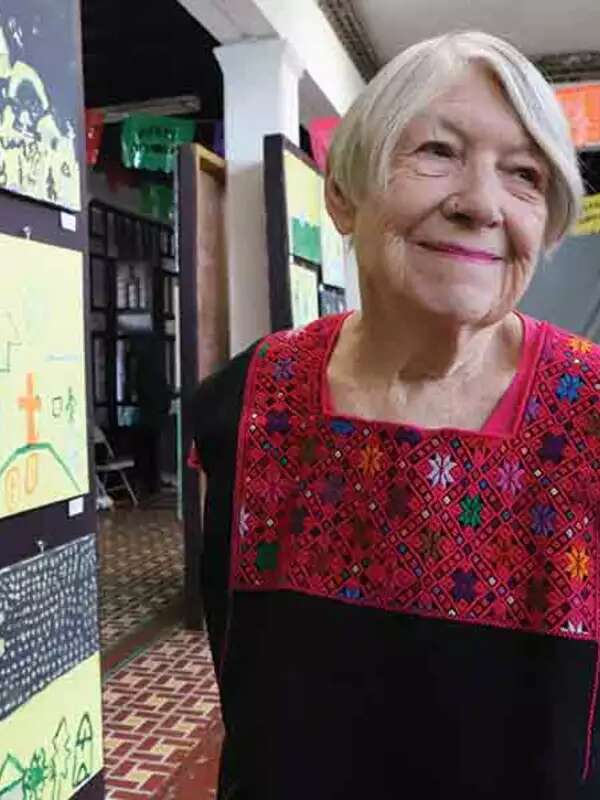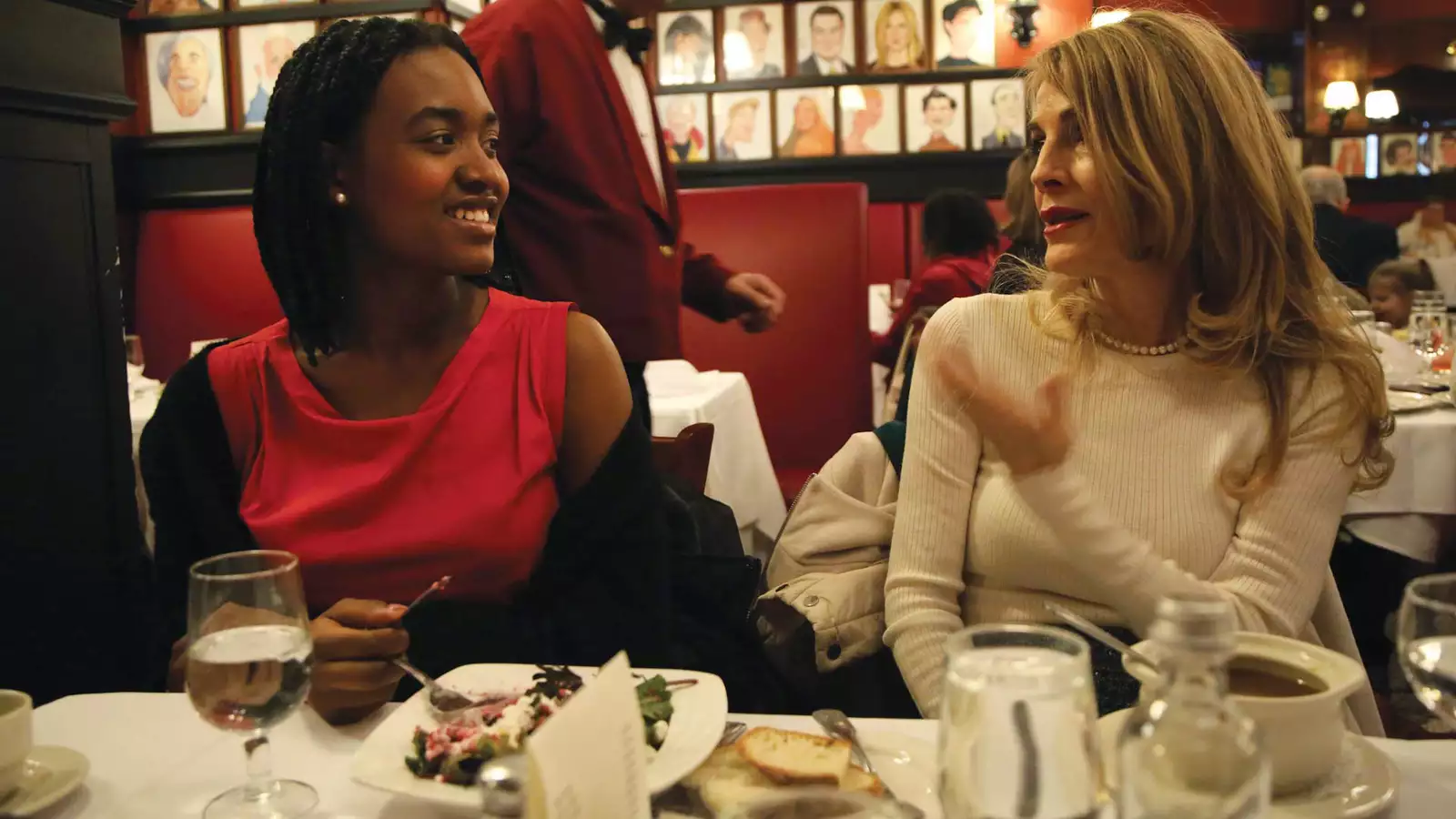

It was December 2020 — that first bleak, isolated pandemic winter — when Phanésia Pharel ’21, then a senior at Barnard, initially crossed paths with Jean Lichty ’81.
Lichty’s La Femme Theatre Productions — which is dedicated to exploring and uplifting women’s experience — was staging a streamed performance of Tennessee Williams’ The Night of the Iguana, and she wanted Barnard interns involved in the process. She put out a call through Beyond Barnard, and Pharel applied.
“We had a Zoom call, and I fell in love with her,” says Lichty, who calls Pharel “my ersatz daughter.” Though the logistics did not ultimately pan out, when they crossed paths again at a 2021 Reunion event, the reconnection forged a mentorship and a partnership that is bringing Pharel’s playwriting prowess from Barnard to off-Broadway.
Pharel, currently an MFA student at University of California, San Diego, is the author of Black Girl Joy, a play she began to write during college. It has already been performed at a workshopped reading in April 2022, directed by accomplished actress and playwright Regina Taylor, and it’s slated for an Actors’ Equity reading on June 16 at the American Musical and Dramatic Academy (ADMA), before heading into full production in the 2024-25 theatre season.
“We are as excited about Black Girl Joy as we are about Night of the Iguana — that’s the truth,” Lichty says, during a conversation in which the two women regularly digress into exclamations of mutual respect and fondness.
Black Girl Joy was inspired by Pharel’s experiences of grief and loss as a young Black woman raised in Miami.
“I wanted to write a play about grief and sisterhood and really asking the question — the hashtag was everywhere, #BlackGirlJoy — what does ‘Black girl joy’ really mean?” Pharel says.
The hashtag #BlackGirlJoy trended on social media in the aftermath of the 2020 murder of George Floyd. It represented a determination to retain hope at a time of deep mourning triggered by police violence toward Black people amid a pandemic that was also disproportionately killing people of color.
Pharel describes the play — about a group of young women and nonbinary friends, also in Miami, grappling with a death — as a “coming-of-age through grief.” Beyond its narrative throughline, the play also explores these themes by incorporating poetry and art. At the April 2022 reading, Lichty says, the inclusion of a beatboxer amplified the play’s emotional resonance.
In addition to reacting to a societal reckoning, Black Girl Joy pulls from Pharel’s personal experiences of grief. Her family lost their home to a fire when she was 13, leading to years of harrowing housing insecurity, which she coped with through writing — initially stand-up routines and then, with encouragement from a high school drama teacher, playwriting. She also grappled with multiple gun deaths of young acquaintances in her childhood community.
These losses were compounded at Barnard when two beloved mentors, legendary playwright Ntozake Shange ’70 and Deputy Dean Alicia Lawrence, passed away during her time on campus.
“Here I am at college, and now I’ve lost two women who are really important to me,” Pharel says. “We never make space for grief, particularly for young Black girls. When I go back to the ‘about’ of this play and I’m circling around it, that’s really what I want to access and parse out.”
Lichty describes Black Girl Joy as imbued with the “soul of Phanésia.”
“I found that the play really revealed a lot about her,” Lichty says. “As Sondheim said, personal is universal. There is something that was very universal about her, about her writing.”
Pharel’s eyes fill with tears, and she takes a deep breath.
“That means the world,” she says. “The last three years, Jean has mentored me and has taught me. Jean is someone I’ve learned how to take space and be yourself from.
“This is a lifelong relationship,” Pharel says. “You never know how long you have somebody, but I’m very grateful.”
Photos by Bruce Gilbert



